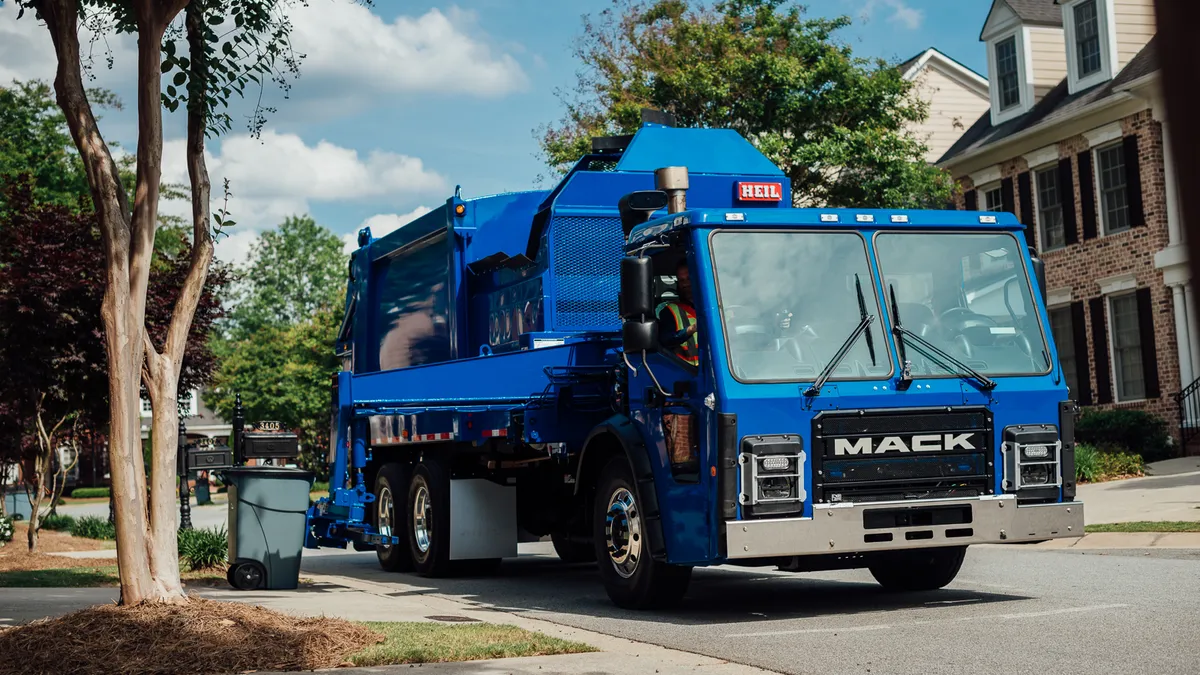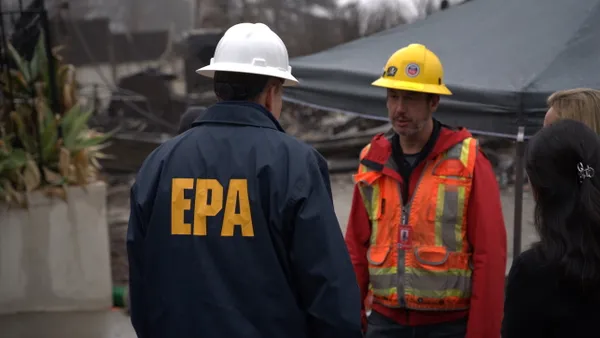Dive Brief:
- Two proposed rules have been announced by the U.S. Department of Transportation’s Federal Motor Carrier Safety Administration (FMCSA) that aim to address the growing driver shortage, as reported by Fleet Owner. The first rule would allow states to waive the commercial driver's license (CDL) knowledge test for veterans and active duty service members that were regularly employed as commercial drivers within the last year.
- The second rule would let states issue CDL learner's permits with one-year expirations, as opposed to the current six-month maximum. The intention is to reduce paperwork and re-testing fees for applicants that need more time.
- "Taken together, these two proposals will help ease the entry for thousands of qualified individuals into career opportunities as professional truck and bus drivers – a critical occupation facing an acute labor shortage in our country," said FMCSA Deputy Administrator Daphne Jefferson in a statement. "We could eliminate unnecessary burdens to both the applicants and to the states, save time, reduce costs and, most importantly, ensure that states only issue commercial driver’s licenses to well-trained, highly qualified individuals."
Dive Insight:
The driver shortage remains a pressing issue for numerous industries, inspiring regulatory updates on multiple fronts that could help mitigate its effects. Last month, the House Transportation and Infrastructure Committee also pushed two bills forward that could expedite the certification process for current and former military personnel seeking CDLs.
Industry organizations such as the National Waste & Recycling Association (NWRA) have lobbied for policies to ease the CDL transition for veterans in the face of tens of thousands of open positions in the coming years. Because of their experience driving commercial vehicles and working in a structured team setting veterans are seen as particularly appealing candidates for the waste sector. Companies are also working to recruit more women and young people as both are currently underrepresented behind the wheel.
Though some reports indicate that advancements in autonomous vehicles could eventually make some of these open positions obsolete, that does little to address the current shortages many companies are experiencing. The issue is so acute in some regions that it is affecting collection schedules and has become a recognized fact of life for some local governments.














